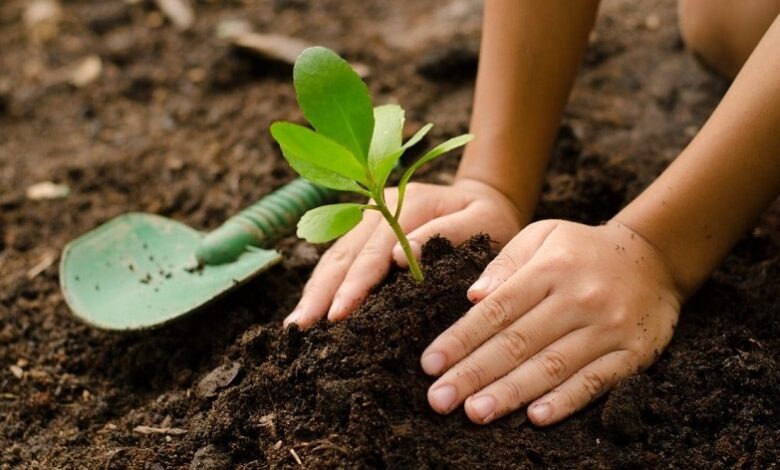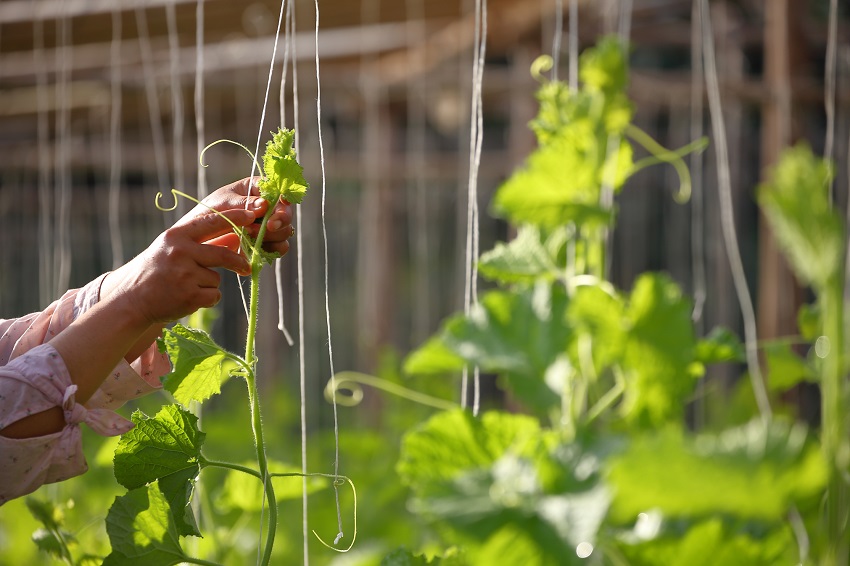What Are the Key Factors to Consider When Planting?

Are you interested in gardening or starting your own small farm? Planting is a fundamental aspect of any horticultural or agricultural endeavor. Whether you’re growing flowers, vegetables, or crops, understanding the essential elements and factors involved in successful planting is crucial. In this article, we will explore the key considerations that can significantly impact the growth and productivity of your plants. So let’s delve into the world of planting and discover the factors you need to observe to ensure healthy and thriving vegetation. The article is published by https://shahraradecor.com/
Soil Quality: The Foundation of Successful Plant Growth
When it comes to planting fruit trees, it’s important to keep in mind the quality of the soil. Tips for planting fruit trees include assessing the soil composition and fertility before planting. Factors such as pH level, nutrient content, and soil structure should be taken into account. Conducting a soil test can provide valuable insights into the necessary amendments or fertilizers required to optimize the soil for planting.
Sunlight Requirements: Harnessing Nature’s Energy
Sunlight is the primary source of energy for plants through photosynthesis. Different plants have varying sunlight requirements, categorized as full sun, partial shade, or full shade. It’s essential to identify the sunlight needs of the plants you intend to grow and select appropriate planting locations accordingly. Observing the amount of sunlight received by your planting area throughout the day is crucial in ensuring optimal growth.
Watering Techniques: Nurturing Plants with Adequate Moisture
Water is vital for plant growth and plays a significant role in nutrient absorption, photosynthesis, and overall plant health. Establishing a proper watering routine is essential to avoid both under-watering and over-watering. Factors such as plant type, climate, and soil drainage must be considered when determining the frequency and volume of watering.
Planting Time: Timing is Everything
The timing of planting can significantly impact the success of your crops or plants. Different plants have specific growth seasons, and understanding these cycles is essential. Factors such as temperature, frost dates, and weather conditions should be considered to ensure plants are introduced to the environment at the most favorable time. Early planting can expose plants to frost or cold temperatures, while late planting may not provide sufficient time for growth before unfavorable weather arrives.
Plant Spacing: Providing Sufficient Room to Flourish
The spacing between plants is crucial for their development and overall productivity. Proper spacing allows for adequate airflow, reduces the risk of diseases, and ensures access to sufficient sunlight and nutrients. Refer to planting guides or consult experts to determine the ideal spacing requirements for the specific plants you are growing.
Nutrient Management: Feeding Your Plants
Plants require essential nutrients for their growth and development. Understanding the nutrient requirements of your plants is vital to provide them with the necessary elements. Organic matter, compost, and fertilizers can be utilized to improve soil fertility and enhance nutrient availability. Pay attention to the specific nutrient needs of different plants, as they can vary significantly.
Pest and Disease Control: Protecting Your Plants
Pests and diseases can severely affect plant health and productivity. Implementing effective pest and disease control measures is crucial to safeguard your plants. This can include preventive methods such as crop rotation, companion planting, and the use of organic or chemical-based pesticides when necessary. Regular monitoring and prompt action are key to preventing and managing potential issues.
Plant Support: Ensuring Stability and Growth
Certain plants, such as climbing vines or large vegetables, require additional support as they grow. Providing trellises, stakes, or cages can help plants grow vertically, prevent breakage, and optimize space utilization. Considering the growth habits of your plants and providing adequate support early on can contribute to their overall health and productivity.
Climate Adaptation: Choosing Suitable Varieties
Different plants thrive in different climatic conditions. Understanding your local climate and choosing plant varieties that are well-suited to the environment is essential for successful planting. Some plants are more tolerant of heat, drought, or cold, while others may require specific conditions to flourish. Researching and selecting climate-adapted varieties will increase your chances of successful plant growth.
Regular Maintenance: Nurturing Your Garden
Maintaining your garden or farm through regular care is crucial for long-term success. This includes tasks such as weeding, pruning, mulching, and monitoring plant health. Regular maintenance helps promote optimal growth, prevents the spread of diseases, and ensures a clean and organized planting area.
Conclusion
Planting involves various factors that collectively contribute to the success of your garden or farm. By considering elements such as soil quality, sunlight requirements, watering techniques, timing, spacing, nutrient management, pest control, plant support, climate adaptation, and regular maintenance, you can create an environment conducive to healthy and thriving plants. Remember to tailor your approach based on the specific needs of the plants you are growing, and don’t hesitate to seek advice from local experts or gardening communities. Happy planting!
FAQs
- How often should I water my plants?
The watering frequency depends on factors such as plant type, climate, and soil drainage. Generally, it’s best to water deeply but infrequently, allowing the soil to dry out slightly between waterings.
- Can I plant vegetables in the shade?
While most vegetables require full sun for optimal growth, some leafy greens and root vegetables can tolerate partial shade. Be sure to choose shade-tolerant varieties and provide a few hours of sunlight each day.
- How can I improve soil fertility for planting?
You can enhance soil fertility by adding organic matter such as compost or well-rotted manure. Additionally, soil testing can help identify any nutrient deficiencies and guide the use of appropriate fertilizers.
- What are some natural pest control methods I can try?
Companion planting, using insect-repelling plants, introducing beneficial insects, and practicing good garden hygiene are some natural pest control methods you can employ. Researching specific pest control techniques for your region is recommended.
- How can I protect plants from frost?
Covering plants with frost blankets or using row covers can provide protection against frost. Additionally, selecting frost-tolerant plant varieties and planting in raised beds can help mitigate frost damage.




